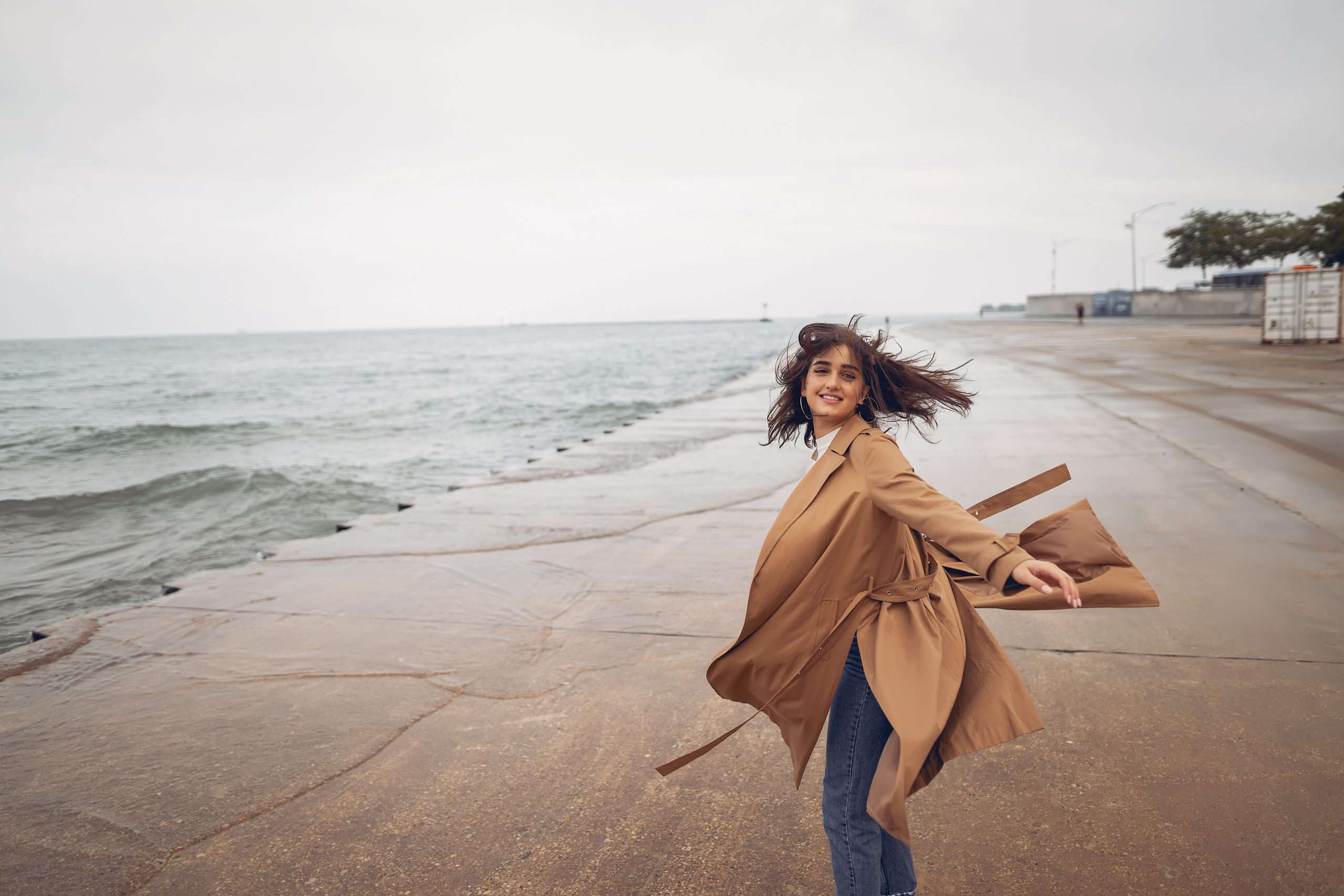
Jalmari Helander toys with the war movie in gnarly fashion with “Sisu,” a Midnight-ready actioner that earns comparisons to the likes of “Inglourious Basterds,” “Mad Max: Fury Road,” “The Terminator,” and “Rambo: First Blood.” The title term is a Finnish concept of will and determination, and we see that scene after scene as one famed Finnish killer terminates Nazi soldiers in the waning days of World War II. The Nazis pick a fight with lone soldier Korpi by stealing his newly discovered gold, thinking they can dispose of him like nearly everyone else they’ve bulldozed through the open, landmine-dappled roads of 1944 Finland. But this one-man army proves a more than deadly challenge for the Nazis’ machine guns, grenades, tanks, airplanes, and more.
Jorma Tommila stars as Korpi, our blood-covered hero of few words but many crafty ways to brutalize his hunters and survive their attacks. As the life source of Helander’s lean and mean plotting, Tommila blows up any limits of what makes a cinematic badass, and becomes the latest symbol for the undying fight against fascist scum. The film takes place in Helander’s favorite location—the great outdoors, as featured in his previous “Rare Exports” and “Big Game”—and features fist-pumping heroism from a group of women (led by Mimosa Williamo’s Aino) who break free from the Nazis’ control.
From Finland, Helander spoke to us over Zoom, with posters for “Rare Exports” and “Rambo: First Blood” hanging over his head and wearing a Patagonia jacket. We talked about his love for Sylvester Stallone’s hero, how making this Nazi-killing action movie made him a better person, the unique place that “Sisu” has in Finnish cinema, and more.
We have to talk about that Rambo poster behind you.
[laughs]
How much was Rambo on your mind from the beginning, even as an inspiration? Is Rambo a big influence on “Sisu”?
The biggest, I think. That’s one of the biggest reasons I want to make films, basically, how much I loved seeing it when I was a kid.
What was something you took away from that experience when you were a kid that has impacted your films since then?
I don’t know, but I was running in the forests with a Rambo knife after that like every day, shooting with a bow and arrow. [laughs] The one thing I really like is to have a film that happens in the middle of nowhere, basically. A forest or somewhere that you can’t get any outside help, and you have to deal with the problems yourself. And also the idea that we don’t know anything about this guy, we know that he’s been in a war. But we don’t know yet how badass of a soldier he is. And there’s a lot of that in “Sisu.”

So which came first with “Sisu,” the character or the story concept of killing Nazis?
I remember having two images in my head when the idea clicked a few years ago. Both images are still in the film. One of them was a man finding gold in this pit, and the second was a man being on a horse facing a tank in the middle of nowhere. I started from there.
How hard is it to work with a tank?
It was hard to get the tank where we needed it to be because we were shooting so far up north. It’s a long way from here. So to get the tank there was expensive and time-consuming and all that. But the tank worked perfectly, and I never had any problems with the tanks or cars, or motorcycles. The only problems were the horse, basically, And the dog. [laughs]
How is it that the tank was so easy, then?
I know the guy who had all the military equipment, and he’s basically doing military safaris with it. He knows everything there is to know about the engines and all that stuff. He does those situations every day. They were really great with that, but it’s not that easy to explain to a horse that we need you to do this thing now, and not tomorrow.
Speaking of that now and not tomorrow—how do you make the sun work for you when you are shooting outside and in open spaces?
We had huge luck with the weather and how it looks in the film. We had open skies, and at that time of year, it could be really foggy and rainy every day. The only time we had fog was in the gas station scene, where it fits perfectly there. But it was really windy, and of course, we needed to be waiting for the sun to come up from the cloud or the right position to shoot something to make it look beautiful. But I had a really good crew.

What was the biggest challenge to figure out in working with this linear plot, in which the hero’s problem-solving becomes your own?
Of course, there was a lot of the problem of him not having a lot of dialogue and trying to explain everything through pictures. And that I need to be witty about how he survives and kills Nazis because I need to stand out from all the other action films in some kind of way.
What was something you came up with that felt you were really doing something differently?
The one I had most fun with was the idea of how to survive underwater. I was laughing a lot when I had that idea.
How much research did you do into artillery, weapons, etc?
Well, this is not like a documentary, so I basically didn’t do any [laughs]. I made them work for me rather than the other way around.
Had you always wanted to do a World War II story like that?
It’s not just WWII, of course, it helps to have Nazis in your film because they’re iconic bad guys, you can do what the f**k you want with them, and no one will care. So, that helps. But also doing it like an epic film where you have all those costumes and films and guns and old vehicles, when you have that place it looks like a film already when you are there, compared to doing a modern-day film in a city. It doesn’t look like anything before you build it somehow.
And you wouldn’t want to do a film set in a city, or would you?
It all depends on the story, but I think I am most home when I am in the middle of nowhere.
I noticed your Patagonia jacket.
Yeah. [laughs]
So you’re an outdoors person.
Well, I like to be in the forest. And I always start my day with a 12-kilometer hike in the forest; it helps me to deal with all the shit I’m dealing with.
Does it help the writing process?
Definitely. Most of the ideas come when I am walking somewhere, and almost never when I am writing.
So a lot of this movie, we could say, was from hikes? Walking around?
Yeah, I’m trying to follow this idea. I have to write only when you have something to write about. Because then the work is nice for you. If you’re just sitting at your laptop, day after day, trying to figure something out, it’s better for the film or script that you do something else. By the time you have that idea. Maybe sometimes, but almost never does it happen in an office.

I read that “Sisu” was written during lockdown. Was that also an inspiration, getting outside? It does play like a story that was written in one sitting or so, which is a good thing.
Yeah, it was a fast process when I was able to do it. But what I needed was some kind of anger. I had a bad feeling of not doing anything for eight years that I had really loved and the feeling of, I will never do anything cool again. I work best in that situation.
Do you feel like you’ve done something cool with this movie?
Yeah, I am so happy with this film and everything that’s happened afterward. And I feel almost like a better person because I’ve done this film now. And I know myself a little bit better, and I think I am also a nicer person now because I’ve done this, and I’m not thinking, I need to do something, I need to do something!
How did it make you a nicer person?
I was getting to a point where I wasn’t happy with myself because I wanted to do something; it had been a big dream of mine since I was a kid to do something special, a big action film. And so I’m better off now that it’s out of my system.
In the future, would you be interested in an even bigger action film? Is it about scale for you? Or keeping things to Rambo-like stakes?
I don’t know yet. I’m writing my own stuff now, and also I have a lot of offers from Hollywood to consider. There are a couple of interesting ones. I just have to find the right project.
I assume these are also other people’s stories?
Yes, it is. I don’t know if it’s going to happen, but at least I have all the options now.
What has the response been like in Finland to “Sisu”?
Yeah, it opened in January here. It was a big thing to make that kind of film in Finland because we basically don’t have any action films in Finland. And what we definitely do not have are films that handle war in a different way. All of the Finnish war films are really serious, and they are like this holy thing. It feels like you can’t mess with the war. But it went really well here in Finland, and people seem to like it. A lot of old people, too, they’re coming to me on the street saying how much they loved it and how different it was for them to watch something like this because they didn’t know they would be able to enjoy something like this.
My mind is blown, as an American, to think that other countries aren’t typically making war movies like this—we don’t have the solemnity you are talking about with Finland.
I almost felt like, jealous, of how you guys dealt with Vietnam. There are all kinds of weird action films about that. So why can’t I do something like that?
“Sisu” will be available only in theaters on April 28th.




